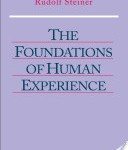Teaming up with my friend Alison here, we are digging deep to try to understand this lecture! On August 26, 1919, Steiner spoke to his teacher trainees for the morning lecture of the Teacher’s Seminar.
Steiner explains his theories about the connection and tension that exist between thinking (cognition) and willing. He discussed these two “capacities of the soul” in his previous lectures, and this day, is introducing the third capacity, feeling.
“Human feeling stands right in the middle between thinking cognition and willing…so that feeling connects with thinking in one direction, and willing in the other.”
Human beings differ from animals; we rise above animals and have personalities because of “the interaction of soul activities” – the interaction of our thinking, feeling, and willing.
Steiner then notes that children act almost exclusively out of their sympathies or feeling, their love or desire for something or someone. (This would be referring to children between the ages of 7-14, the years Steiner is training the first teachers to teach.)
BUT, Steiner goes on to strongly state: When sympathy is born into the world, it is strong love and willing. However, it cannot remain so; we must permeate it with thinking and in a sense continuously illuminate it with thinking. This occurs comprehensively when we integrate moral ideas into our simple instincts.
Ahhh, we don’t want to keep our children in the world of feeling forever! In fact, young children below the age of seven live mostly in the world of the will, learning through imitation. Elementary children act out of feeling, as Steiner is pointing out in this lecture. And teens as well as adults are most grounded in our thinking. This is the developmental progression.
So how do we apply all of this to our homeschooling?
Alison: I think of this lecture as almost a gentle admonishment to teachers to keep a vision of the totality of our mission as educators in mind; our goal is to affect change in the world. (For Steiner, that world was post-WWI Germany.)
Steiner seems to be pulling back a bit from his earlier emphasis on cultivating feelings in the children by saying that children are indeed all feeling, so that is our avenue for reaching them (with captivating stories and artistic activity), BUT we, as teachers, must remember that we are not trying to cultivate just any emotional, sympathetic response in our students. We must strive to illuminate and guide our students by simultaneously encouraging right MORAL THINKING as well. Moral ideas are born out of thought and reason — they properly guide instinct and feeling. And Steiner seems to be saying that they must be taught, not directly necessarily, but through the understanding and intention of the teacher.
I think this lecture shows that Steiner had a far more balanced understanding of the human being and that his pedagogy is supported by more of a hard realistic stance toward human nature than at least I (Alison) have given him credit for!
We have to be strongly on our guard against making Waldorf education over-protective in terms of content and just too syrupy sweet. This was definitely not Steiner’s intention. There is a definite developmental progression in the Waldorf curriculum. Yes, each year’s lessons in the elementary years speak to the feeling aspect of the soul, but they also address the moral thinking part of the soul as well.
Fairy tales, fables, Old Testament stories, Norse myths…on and on…each year the student strengthens his or her capacity not only to see human behaviors in beautiful pictures but to think about human actions in an increasingly thoughtful, and yes, moral way. This was very important to Steiner as his aim was social and spiritual renewal after the devastating effects of World War I. Steiner’s curriculum is designed to elevate the human being and it does so by understanding the particular interactions between thinking, feeling and willing at the different developmental stages of human life.
The Steiner Cafe is a place to explore and reflect on the lectures that Rudolf Steiner gave at the Teacher’s Seminar in 1919, the very first Waldorf teacher training. Each month here, we ponder one day of the seminar.
To read reflections on previous lectures, check out The Steiner Cafe page.
These lectures are published in three books; the morning lectures in The Foundations of Human Experience; later morning lectures in Practical Advice to Teachers; and afternoon lectures in Discussions with Teachers. We invite you to pick up the books and read along.
If you prefer, you can read online at www.rsarchive.org, or listen at www.rudolfsteineraudio.com. Or, just meet us here each Thursday or Friday at The Steiner Cafe for some lively discussion. Lot’s of options! Hope you’ll join us.



